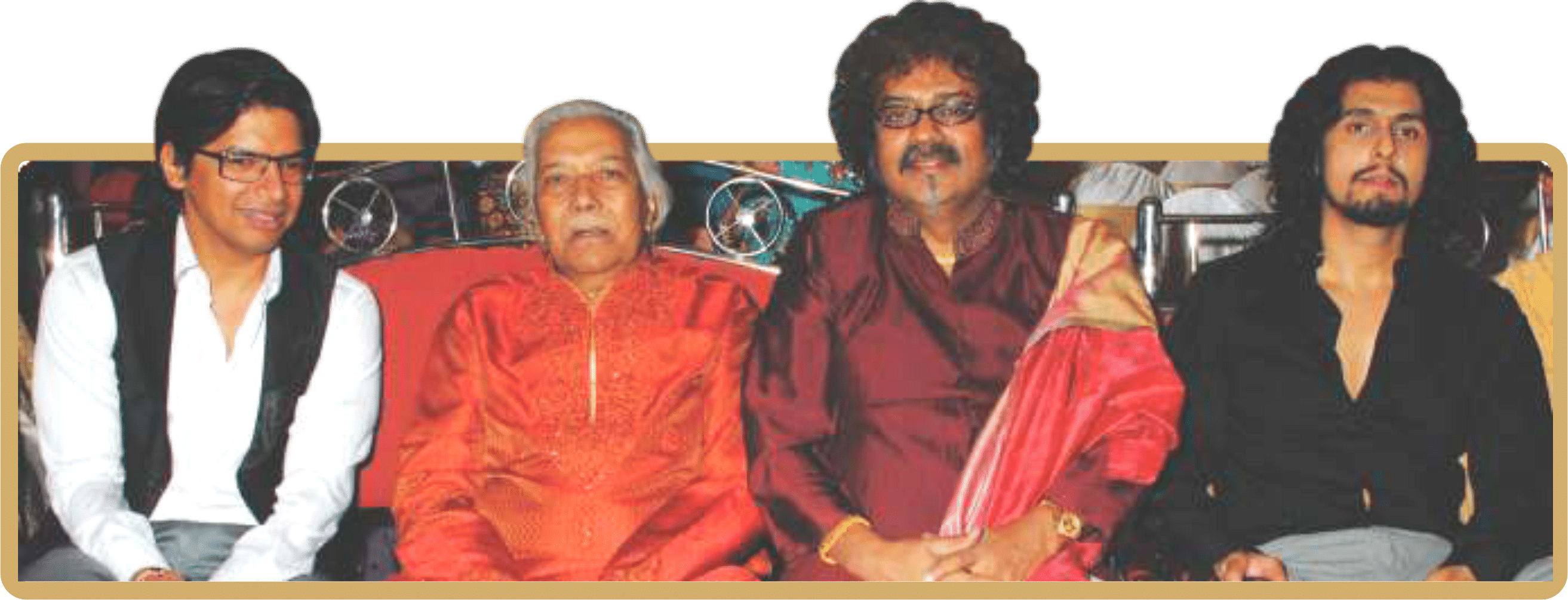
The musical arc of the 1981 film Umrao Jaan begins with a tutoring session between an Ustad and his disciples. It is in the form of a raagmala, and the sequence is visually and aurally appealing. The Ustad sang in the ethereal voice of Ustad Ghulam Mustafa Khan.
Ghulam Mustafa Khan, who died earlier this week, was a doyen of the Rampur-Sahaswan gharana. Indeed he was the Khalifa, since his maternal grandfather Ustad Inayat Hussain Khan was a founding father of the gharana.
At the peak of his prowess, his voice had great flexibility and depth, and his tayyari was formidable, equally at ease in three octaves, and at multiple tempi.
His many recordings, from the sombre Bilaskhani Todi to the majestic Darbari, the bright Yaman Kalyan to the playful Bageshree, demonstrate the breadth of his music. But his first commercial LP, featuring the then unusual raag Saraswati, and a somewhat idiosyncratic Nayaki Kanada, remains special, and is representative of his classical oeuvre. The opening piece of the Umrao Jaan raagmala, ‘Pratham dhar dhyan’, is in raga Ramkali. It is a characteristically Rampur-Sahaswan take on this morning raga, and the bandish was composed by none other than Inayat Hussain. It is a beautiful paean to Hindu gods, and it showcases the effortless secularism of the music community.
Apart from the raagmala, Ghulam Mustafa Khan also sang the raga Tilak Kamod-based ‘Jhula kinne dala re’ in Umrao Jaan. It reveals a different facet of his singing, showcasing his facility with the thumri form. The raagmala sequence is symbolically apt in another way, as he has mentored generations of film personalities.
Asha Bhosle, Manna Dey and Geeta Dutt were groomed by him. Latter-day playback singers Sonu Nigam, Hariharan and Shaan are his disciples as well. And there are many more. Thus the on-screen Ustad coaxing the finest notes out of his on-screen disciples becomes an oddly satisfying metaphor.
In the 1987 Films Division documentary ‘Khayal’, the Rampur-Sahaswan gharana was (naturally) represented by Ghulam Mustafa Khan, and he sang the same Ramkali composition as the crown jewel of his gharana. It was a brisk, power-packed performance worth listening to. He has lent his voice to scores of documentaries. His majestic presence is felt in the multi-artist version of Jana gana mana.
Ghulam Mustafa Khan had a long association with the film world. He is said to have sung for the Marathi film Chhand Priticha (1957). Pandit Vijay Ragav Rao first used his voice for some alaaps in Mrinal Sen’s Bhuvan Shome (1969). His song ‘Saajna kaahe nahi aaye’ for Badnam Basti (1972), also composed by Vijay Raghav Rao, is very engaging. It is faintly reminiscent of ‘Aaoge jab tum saajna’, sung decades later by his nephew and disciple Rashid Khan.
He also composed fine music for Aagaman (1988). In fact, he was active until the very end, and his last film sojourn was for 31st October (2016). Thus, at the ripe old age of 85, he belts out the very contemporary Sufi number ‘Maula’ with ease that would put singers half that age to shame. His stint with Coke Studio arranged by one of his many pupils A R Rahman was well received. He was also a sensitive ghazal singer, highlighting enunciation and emotion and underplaying technical virtuosity.
In an informal tribute to his guru, Sonu Nigam referred to him as the “last of the greatest”. Khansaheb was certainly one of the last of a generation of great musicians. His absence will be sorely felt. But the legacy of his music, through his recordings and his disciples, will live on for generations to come.
Disciples in Bollywood
Manna Dey, Asha Bhosle, Sonu Nigam, Shaan, Hariharan, and A R Rahman